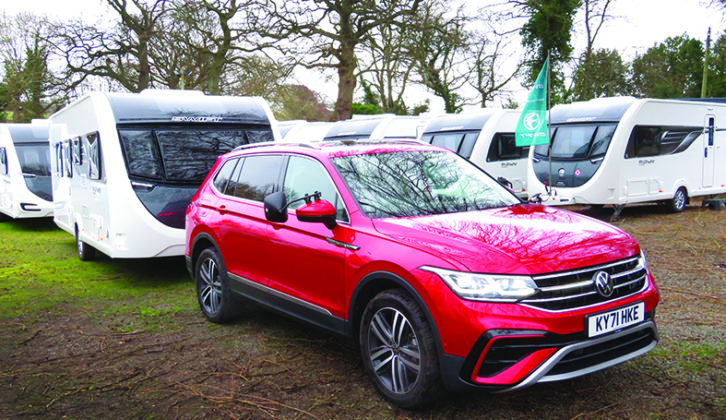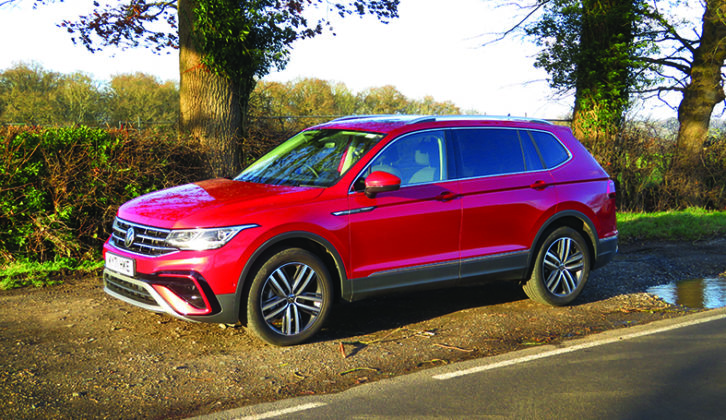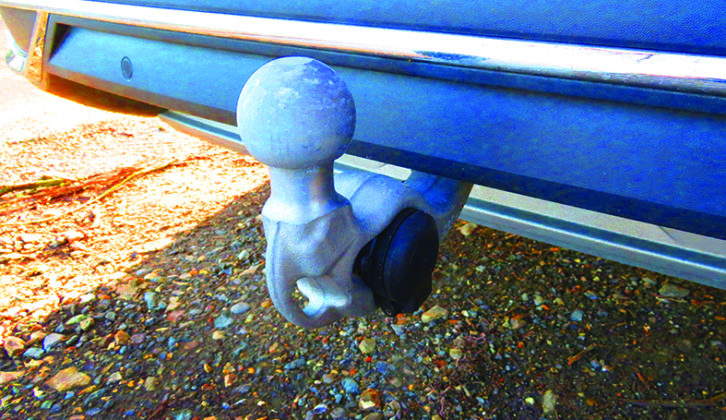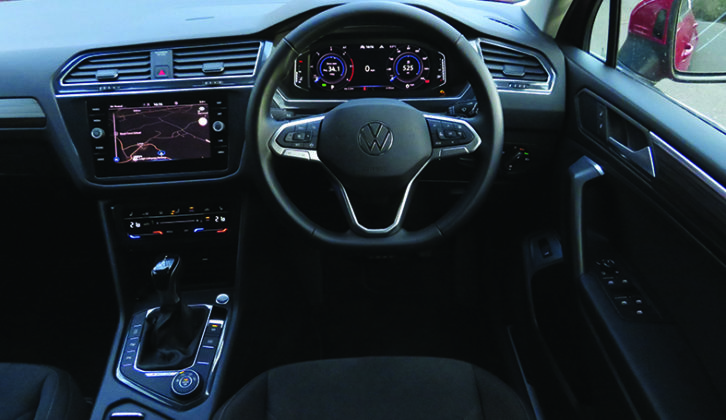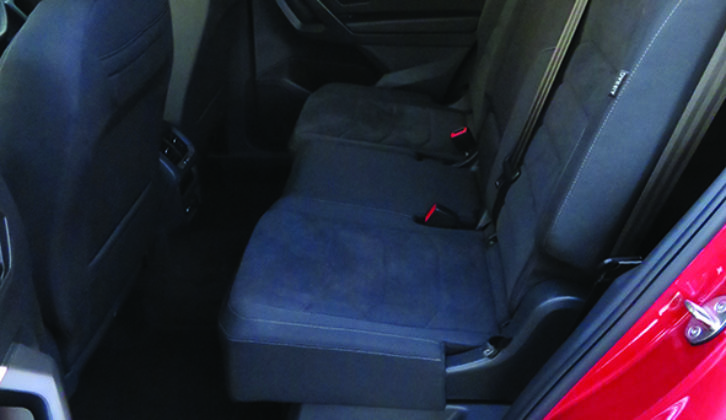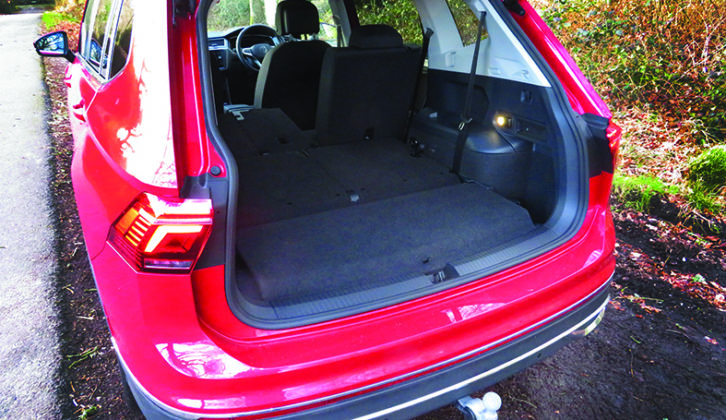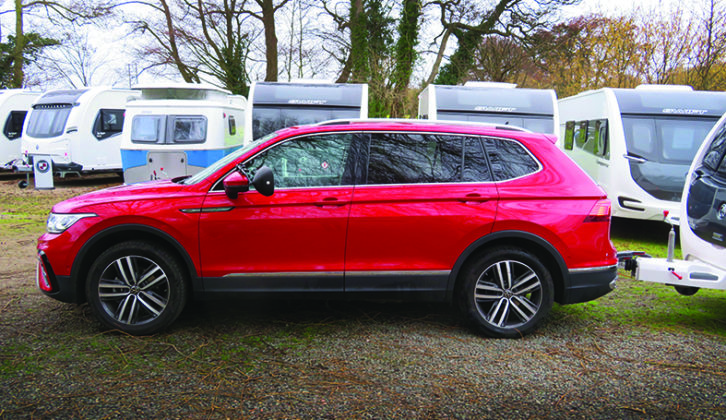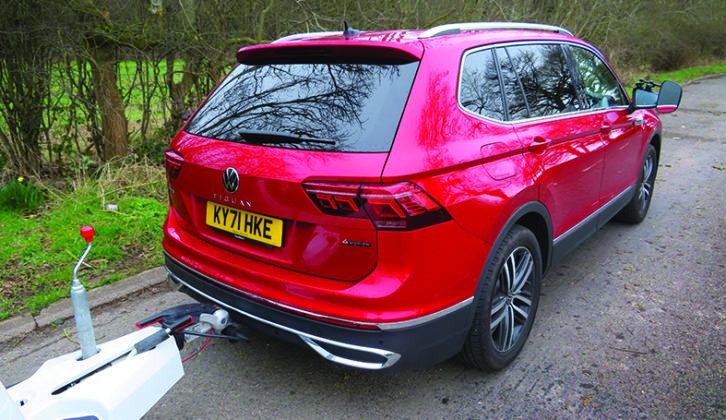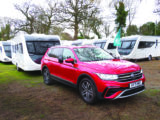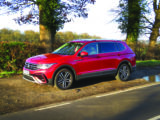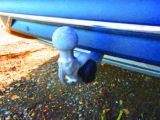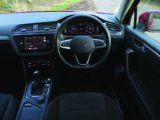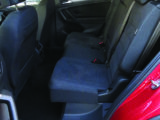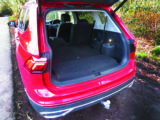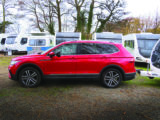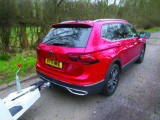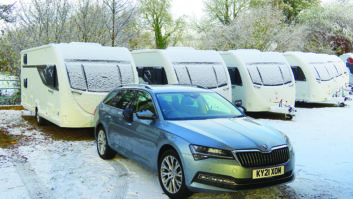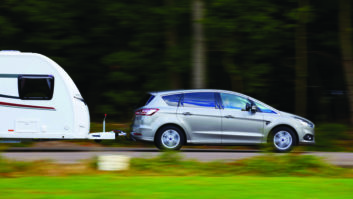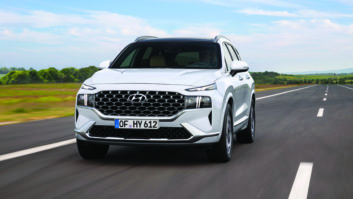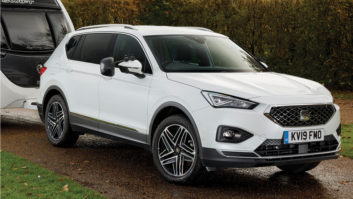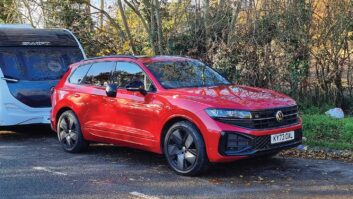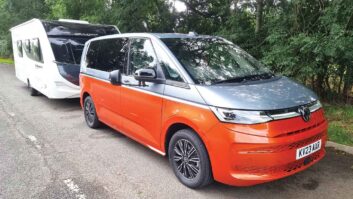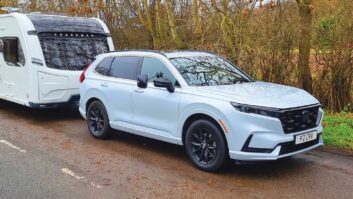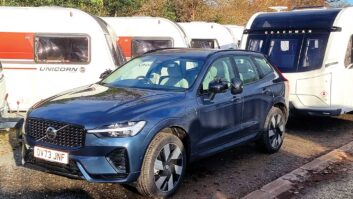Volkswagen has given the Tiguan Allspace something of a mid-life make-over. There are styling tweaks so subtle you’ll need to have the old and new models parked side by side to spot them, along with uprated driver assistance systems.
These include Travel Assist, which allows the car to brake, accelerate and steer for itself, under the driver’s supervision. The VW also comes with IQ LIGHT headlights, which provide multiple modes (not just dipped and high-beam) to suit a range of different driving conditions.
As before, the VW is available with a choice of petrol and diesel engines, and in both two- and four-wheel drive guises. It’s the 2.0 TDI 150 4Motion Elegance DSG that we’re testing here, with an on-the-road price of £41,995, looking to see if it’s worth a place in the discussion for the best 4×4 for towing.
What are we looking for?
Have the changes done enough to keep the VW competitive against rivals such as the Hyundai Santa Fe and Kia Sorento. And how well does the Tiguan Allspace tow?
Towing ability
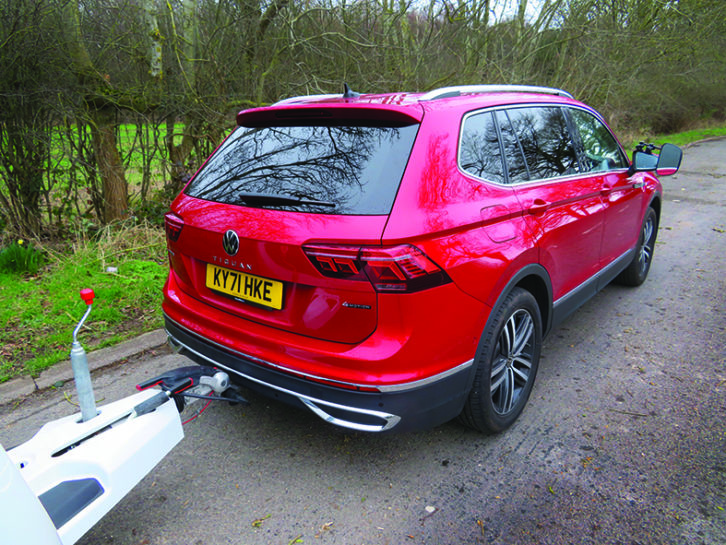
Our test car is one of the heaviest models in the Tiguan Allspace range, thanks to its four-wheel-drive transmission and diesel engine. With a kerbweight of 1834kg, the VW has an 85% match figure of 1559kg.
That’s well within the legal towing limit of 2500kg. Those numbers mean a wide spectrum of tourers will make sensible matches, but it’s worth noting the Kia Sorento diesel costs just a few hundred pounds more and has a kerbweight of 1954kg, giving it some useful extra heft when it comes to the 85% match figure.
We matched the Volkswagen to a Swift Fairway Platinum 860 with a MiRO of 1554kg. The Allspace pulled it with ease, which we hadn’t expected, given this is one of the largest, heaviest VW Group cars to use the 150hp 2.0-litre engine.
The power output isn’t all that important when it comes to towing. Torque is far more relevant, and the VW’s engine has 266lb ft. That trails the Kia Sorento by some margin, but the Tiguan didn’t feel underpowered. The engine responded with determination and had no trouble hauling the Swift to 60mph.
Like most automatics, the Tiguan’s gearbox has ‘drive’ and ‘sport’ modes. As you’d expect, it was quicker to change down in ‘sport’, but it wasn’t too sluggish in ‘drive’. The only exception was pulling out of a junction, when the VW accelerated with greater immediacy in ‘sport’.
A hill start on a 1-in-10 slope was also well within its towing capabilities. The electronic parking brake held the car and caravans still and released promptly, and the Tiguan Allspace towed to the top of the hill without any wheelspin. You could hear the engine working hard, but this was the only sign of strain.
We’ve towed with the pre-facelift Tiguan Allspace, and found it extremely stable. Luckily, VW hadn’t messed with something that wasn’t broken, so there are no changes of note to the chassis and suspension.
On a breezy day, there was a reassuring familiarity to the VW’s towing behaviour. It may be lighter than some rivals, but you wouldn’t know that from the way it tows. This is a very stable tow car indeed.
In still air, it feels as if it could tow all day without a twitch, and even in blustery weather or when overtaking an HGV, we could rarely feel any movement from the caravan. It really does inspire confidence.
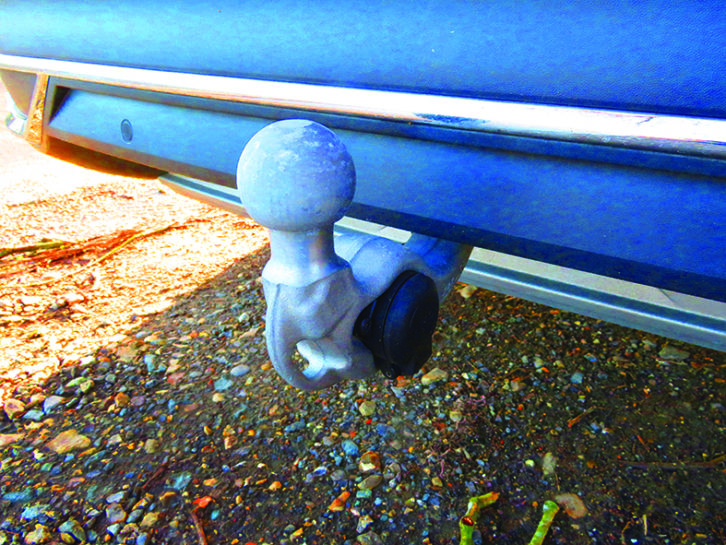
It’s easy to drive at low speeds, too. The DSG auto creeps more smoothly than some examples of this style of gearbox, and the rear-view camera gives a clear view of the towball, so hitching up is straightforward.
For an extra £285, it’s possible to order the car with Trailer Assist, which turns the steering wheel for you while reversing a caravan or trailer.
You instruct the system how steeply you need to turn using the mirror adjustment controls, so you don’t have to worry about turning the wheel what seems like the wrong way to begin the turn. It’s nice to have rather than essential, though, and fairly redundant if you have a motor mover.
The towball and electrics (£835) drop down at the press of a button. The 13-pin socket is on the side of the towbar, well clear of the bumper.
Solo driving
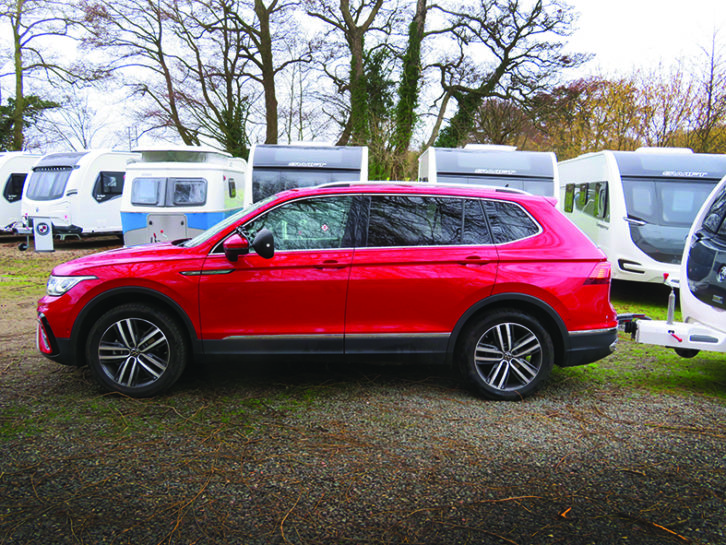
The VW continues to impress in everyday driving. There’s enough performance from the 2.0-litre diesel to make the most of any safe overtaking opportunity, so we wouldn’t rush to spend extra on the range-topping 200hp model.
So long as you don’t rev the engine hard, any diesel gruffness stays in the background. There’s some wind noise at motorway speeds, but not much in the way of road noise to disturb the peace. That makes the Tiguan a quiet and comfortable way to travel long distances.
The ride is on the firm side, so you do feel sharp bumps in the road. From past experiences we know that Tiguan’s with smaller alloys than the 19-inch wheels fitted to the Elegance models are more forgiving.
The trade-off for this firmness is excellent handling for an SUV. The VW corners crisply with little lean, and the steering is light but precise. It certainly feels more nimble than the Kia Sorento.
There are different driving modes, and ‘sport’ does firm up the steering and make the throttle response sharper. But it makes no difference to the suspension unless you pay extra for the adaptive chassis (£825).
Given the standard set-up strikes a good compromise between comfort and control, we’d be inclined to leave that option box unticked.
For a seven-seat SUV, the Allspace is relatively compact. In fact, it’s a few centimetres shorter than a VW Passat Estate. This helps squeeze the Tiguan into parking spaces that bigger SUVs would struggle to fit into. To help further, Park Assist is standard and wills teeter the car while parallel parking or reversing into a bay.
Space and practicality
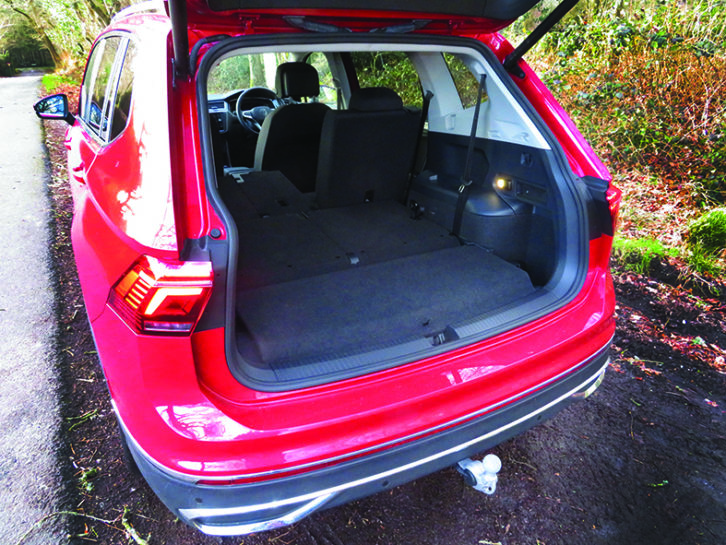
If you are looking for a true seven-seater, the likes of the Hyundai Santa Fe might suit you better. However, if the third row is only used occasionally, the Allspace is very practical.
Up front, both driver and passenger have plenty of space, and the seats and steering wheel offer wide adjustment.
The dashboard has digital instruments, which can be configured to show different information. Having a map between the speedo and rev counter is one handy option.
The 10.25-inch touchscreen is crisp and clear. The air-con controls are separate from the screen, but use fiddly touch-sensitive pads.
The second row of seats offers enough space for adults, even if those in the front are tall. But the big transmission tunnel gets in the way if all three seats are occupied.
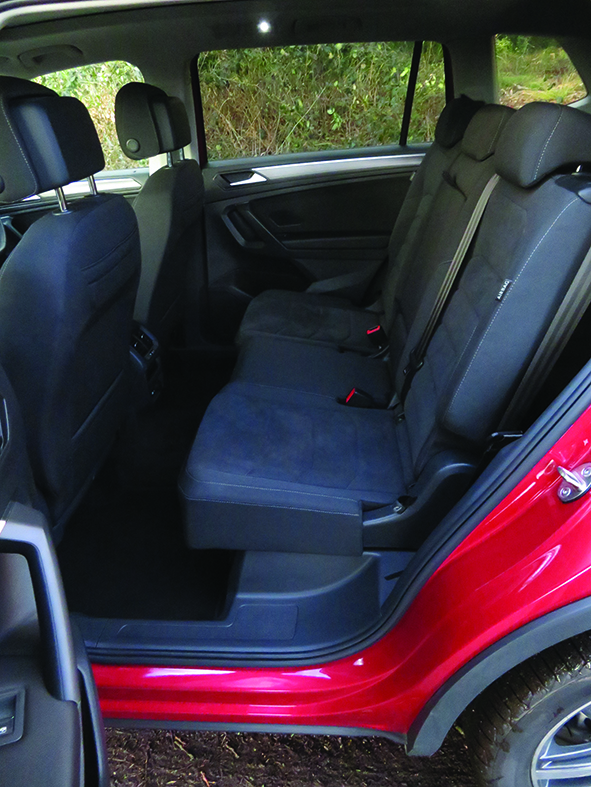
Those in the third row have drawn the short straw, with restricted head- and legroom. It’s possible to make seats six and seven more comfortable by sliding the middle row forward, but we wouldn’t want to sit in the back on a long journey.
With all seats in place, there’s 230 litres for bags – think space for a weekly shop rather than holiday luggage. Leave the third row stowed and there’s a more useful 700-760 litres for your bags, depending on the position of the second-row seats.
Buying and owning
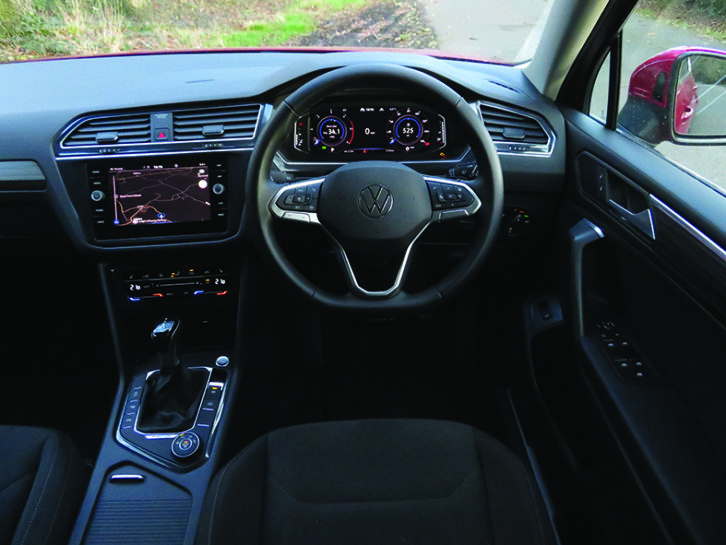
With a price tag of £41,995, our high-spec test car is competing against bigger, heavier SUVs. But research by What Car? magazine suggests discounts are there for the asking, and Elegance models are very well equipped as standard.
Strong resale values help to keep whole-life costs reasonable, with the VW predicted to be worth 51% of its price after three years and 36,000 miles.
Fuel bills should be fair, too: the official combined figure is 42.8mpg, and we saw around 40mpg in solo driving. While towing the Swift, the Tiguan returned 23.8mpg.
How much will it cost on finance?
We found a personal contract hire deal from Vehicleflex, with an initial payment of £4572.63. For the next three years, there would be monthly payments of £508.07. Mileage would be capped at 10,000 each year, after which penalty charges apply. There would be no additional fees, and maintenance could be added for £25,85 per month.
Verdict
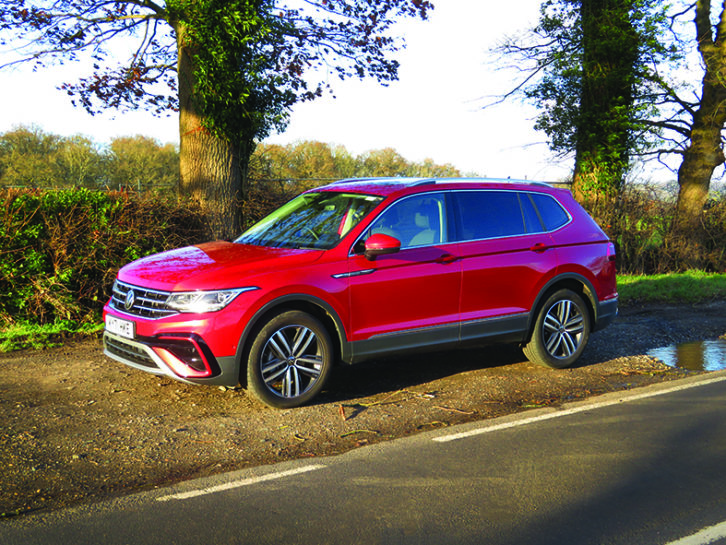
The Tiguan Allspace is a tad pricey, and you can buy heavier and more powerful tow cars for similar money. Even so, the VW is a very fine tow car.
Although the engine is down on power compared with the Kia Sorento’s diesel, it gave a good account of itself towing a caravan weighing over 1500kg.
The VW pulls up to speed briskly and confidently, while four-wheel drive means the Tiguan puts its power to the road without any fuss, whether you are pulling out of a junction or making a hill start.
Stability is the Tiguan’s finest quality. Whether towing on a poorly surfaced country road, or mixing it with coaches and HGVs on a busy motorway, the VW simply gets on with the job. There’s nothing flashy about the way the Tiguan goes about its business, it just makes towing that little bit more calm and straightforward. It’s the kind of car you tow with in bad weather, and don’t appreciate how strong the wind has been until you climb out at journey’s end.
So long as you only plan to use the third row of seats from time to time, the Allspace is practical, too. There’s room for adults to travel comfortably in the first two rows, and with the third row folded into the floor, the VW has plenty of space for holiday luggage.
For a 4×4 of this size, running costs are sensible, and although far from cheap to buy, the Elegance model is well equipped. While the recent updates are subtle, the Tiguan still remains one of our favourite family SUVs.
If you liked this… READ THESE:
10 of the best new tow cars in 2022
If you’ve enjoyed reading this article, why not get the latest news, reviews and features delivered direct to your door or inbox every month. Take advantage of our brilliant Practical Caravan magazine SUBSCRIBERS’ OFFER and SIGN UP TO OUR NEWSLETTER for regular weekly updates on all things caravan related.
It may be lighter than some rivals, but you wouldn't know that from the way it tows. This is a very stable tow car indeed
Technical Specifications
| Engine Size | 1968 cc |
| Kerbweight | 1834 kg |
| 85% KW | 1559 kg |
| Towball Limit | 100 kg |
| Maximum Towing Limit | 2500 kg |
| Power | 150 bhp |
| Torque | 266 lb ft |
| Offical MPG | 42.8 mpg |
| Towing MPG | 23.8 mpg |
| CO₂ | 173 g/km |
